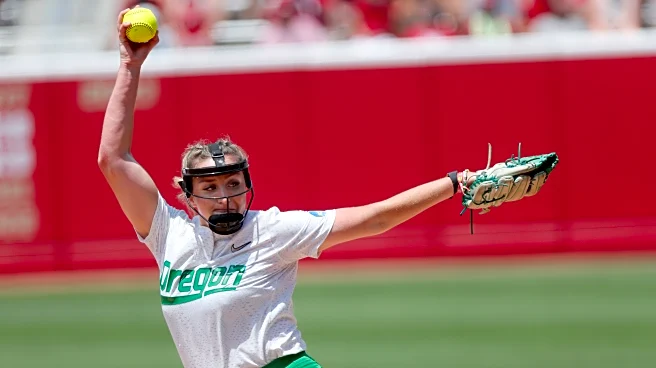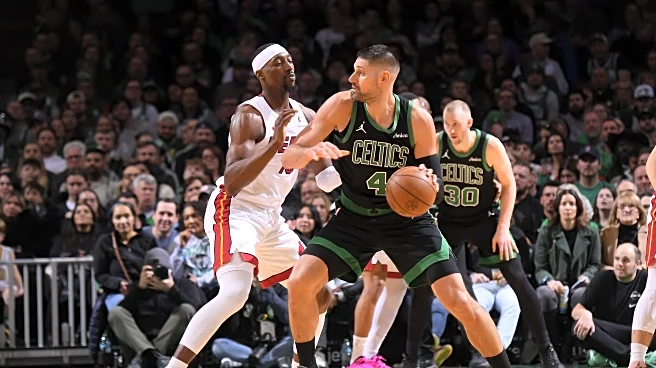What's Happening?
The San Francisco 49ers are preparing for their Week 5 matchup against the Los Angeles Rams on Thursday Night Football, with several key players facing injury concerns. Brock Purdy is listed as questionable due to a toe injury, while George Kittle and Brandon Aiyuk remain sidelined with hamstring and knee injuries, respectively. Christian McCaffrey, a standout player for the 49ers, is expected to play despite his injury history. The game, scheduled for 8:15 p.m. ET at SoFi Stadium, features a loaded NFL DFS player pool, including Matthew Stafford and Puka Nacua from the Rams. The 49ers are looking to improve their defensive performance, as they currently rank second-to-last in total yards allowed and last in points given up.
Why It's Important?
The upcoming game is crucial for the 49ers as they aim to bounce back from their recent loss against the Jacksonville Jaguars. Injuries to key players like Brock Purdy and George Kittle could impact the team's performance and strategy. Christian McCaffrey's participation is vital, given his dual-threat capabilities in the 49ers' offense. The team's defensive struggles are a concern, as they have surrendered significant points and yards in previous games. A win against the Rams could help the 49ers regain momentum and improve their standing in the NFC West.
What's Next?
The 49ers will need to address their defensive issues and manage player injuries effectively to secure a win against the Rams. The outcome of Thursday's game could influence their position in the NFC West and impact their playoff prospects. Fans and analysts will be watching closely to see how the team adapts to these challenges and whether they can leverage their offensive strengths to overcome their defensive weaknesses.
Beyond the Headlines
The 49ers' injury concerns highlight the broader issue of player health and safety in the NFL. Teams must balance the need for competitive performance with the long-term well-being of their athletes. The league's handling of injuries and player recovery protocols could have implications for future policies and practices.










